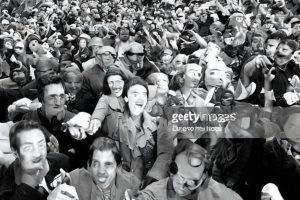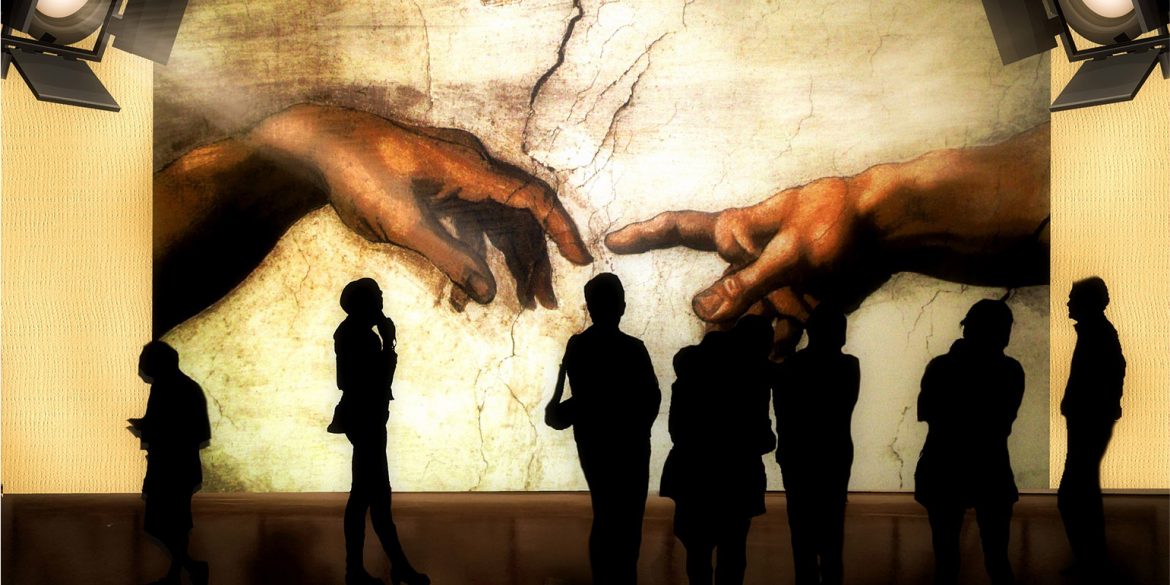In my last column I wrote about generative AI apps shaking up the world of commercial art and illustration. Precisely, I eulogised the average commercial artist who creates digital portraits, realistic photo-images, digital templates, graphics, and illustrations. Many of you sent me your comments and questions, a persistent one being if AI is ‘stealing’ the work of artists.
When it comes to generative AI art, plagiarism is the biggest concern.
To find the exact answer to that question, I wrote to a few engineers working in AI, and while most of them responded, none of them agreed to talk on record. The reason was simple and understandable — this technology is in the making at this very moment. The ethical aspects of theft, copyright infringement, and control over training data are still under consideration. One AI scholar I was in touch with sent me a link to The Verge article — “Getty Images is suing the creators of AI art tool Stable Diffusion for scraping its content / Getty Images claims Stability AI ‘unlawfully’ scraped millions of images from its site. It’s a significant escalation in the developing legal battles between generative AI firms and content creators.”
The results are stunning and impressive, but are they fair? Because the ‘stylisation’ by Lensa is based on art styles of millions of artists.
When it comes to generative AI art, plagiarism is the biggest concern. A few weeks ago, social media platforms were replete with digital portraits of influencers created by Lensa, an app that was rumoured to be making a million dollars every day. Unlike other AI apps that generate art based on text prompts, Lensa needs to be fed with your actual photos (and a bit of money). The app launches the photos in existing database to create stylised portraits based on the photographs. The results are stunning and impressive, but are they fair? Because the ‘stylisation’ by Lensa is based on art styles of millions of artists.
Signature art styles are the soul of an artist’s work, but just another visual detail that AI can memorise and replicate quickly.
Lensa, or any generative AI, memorises and replicates art styles of the artworks it trains on. The problem is, many artists have come forward saying that AI has trained on their artwork without their consent. Last month, The Guardian published a report in which Australian artists accused Lensa of stealing their style. “They are calling it a new original work but some artists are having their exact style replicated exactly in brush strokes, colour, composition – techniques that take years and years to refine,” Sydney-based artist Kim Leutwyler told The Guardian.
The brush stroked, lines, colours, composition, techniques and all the details that Leutwyler is talking about makes an artist’s art as unique as their DNA. Signature art styles are the soul of an artist’s work, but just another visual detail that AI can memorise and replicate quickly.
While training on their artworks, AI also trained on the signatures of the artists… Hilariously, same thing happened with Getty Images.
Last month, a graphic artist posted zoomed in shots of Lensa portraits on Twitter. The shots focusing on an interesting detail — the “artist’s” signature. While training on their artworks, AI also trained on the signatures of the artists. The AI picked it up as a visual detail and produced a similar looking scribble in its output. Hilariously, same thing happened with Getty Images. There are several photographs published by The Verge where Stable Diffusion, Stability AI’s core service, has recreated images with Getty Images’ distorted watermark, pretty much like Lensa portraits.
I’m cropping these for privacy reasons/because I’m not trying to call out any one individual. These are all Lensa portraits where the mangled remains of an artist’s signature is still visible. That’s the remains of the signature of one of the multiple artists it stole from.
A ? https://t.co/0lS4WHmQfW pic.twitter.com/7GfDXZ22s1
— Lauryn Ipsum (@LaurynIpsum) December 6, 2022
An article published by Sifted, states that Stability AI’s CEO Emad Mostaque believes that “generative AI is ‘transformative’, meaning that the technology changes the nature of the material, and therefore doesn’t infringe copyright”. But Getty Images doesn’t see it that ways. “It is Getty Images’ position that Stability AI unlawfully copied and processed millions of images protected by copyright and the associated metadata owned or represented by Getty Images absent a license to benefit Stability AI’s commercial interests and to the detriment of the content creators,” their issued press statement states. Generative AI is the biggest threat to stock image industry, and also to artists.
These technologies will shape the future but maybe it is a good idea for corporations and clients to wait and watch before incorporating these in their commercial work.

Last year, text-to-image AI tools like DALL-E, Stable Diffusion and Midjourney swept the world off its feet. But now that the wonder has somewhat subsided, the questions of legal and ethical risks have come up. Quite literally for Stability AI that will be facing a number of lawsuits by Getty Images and also by a few artists. In future though, Mostaque has said on Twitter, the artist can opt out from being trained by the AI. Still, it will be interesting to know the court’s position in the cases already filed. These technologies will shape the future but maybe it is a good idea for corporations and clients to wait and watch before incorporating these in their commercial work.
A research paper by Somepalli, G. et al. that’s likely to be published soon investigated data replication in diffusion models.

The caption under the above image stated, “Stable Diffusion is capable of reproducing training data, creating images by piecing together foreground and background objects that it has memorized. Furthermore, the system sometimes exhibits reconstructive memory, in which recalled objects are semantically equivalent to their source object without being pixel-wise identical.”
Would you call the uncanny similarities in the images plagiarism?
***
 Preksha writes about things that intrigue her, and Indian design is on top of the list. She lives between Italy and India (not in Iran).
Preksha writes about things that intrigue her, and Indian design is on top of the list. She lives between Italy and India (not in Iran).

